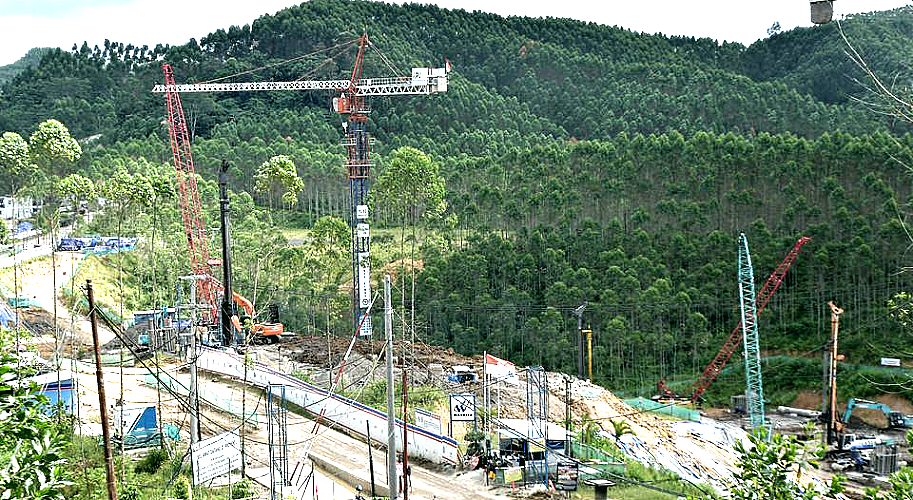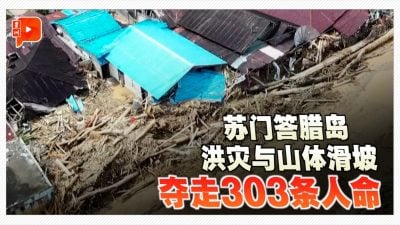Of late, Indonesia’s President Joko “Jokowi” Widodo has been hard at work promoting foreign investment in Indonesia’s future new capital, Nusantara, slated to replace Jakarta as the center of administration by 2024.
The President’s whirlwind visits in June 2023 to keystone Asean countries Malaysia and Singapore underscore how deeply Indonesia values its longstanding ties with its regional partners.
In Malaysia, Jokowi paid a courtesy call on the Yang di-Pertuan Agong and discussed outstanding bilateral issues with Prime Minister Anwar Ibrahim, including maritime demarcations in the Sulawesi Sea and closer collaboration in addressing embargoes on palm oil.
On the ground, the President visited a market in Chow Kit, where he was enthusiastically mobbed by an adoring crowd consisting mostly of the economically and culturally significant Indonesian expatriate community here, many of whom broke into an impromptu rendering of the national anthem “Indonesia Raya.”
In Singapore, Jokowi spoke at Temasek’s Ecosperity summit, sharing at length about Indonesia’s green transition and challenges in combating climate change.
He also spoke of the ongoing development of Nusantara, extending an open invitation to Singaporean entrepreneurs to invest in his country’s new capital city.
This was no doubt intended as a follow-up to a visit to the site of the would-be capital by a large party of Singaporean officials and businesspeople just the week before.
Indeed, in March 2023 the republic announced an attractive goody bag of incentives to draw in investors to its new capital city.
Among these are 100 percent tax holidays, lasting between 10 to 30 years according to sector, for companies investing a minimum of Rp 10 billion (nearly US$ 670,000), tax breaks for foreign companies moving their operations to the city and for firms setting up financial centers, selected R&D activities, and a waiver of import taxes on capital goods.
Priority is especially given to developers of essential infrastructure, including housing, healthcare, public works, and ports, as well as corporations looking to develop malls, hotels, communications, information technology, and the energy sector, all of which are critical in stimulating the city’s economy.

It is worth noting that the Indonesian government has projected that only 20 percent of the $35 billion project will be footed by taxpayers, with the rest being funded by private investments, both foreign and domestic.
Malaysian businesses too would do well to take advantage of the lavish incentives proffered by the Indonesian government in developing Nusantara.
Situated on the east coast of Kalimantan on the world’s third-largest island, Indonesia’s future capital city lies at a strategic crossroads between the Asia-Pacific region, Australasia, and Oceania.
Given Nusantara’s favorable location in a high-density shipping corridor, roughly equidistant between China, India, and Australia as the crow flies, there is enormous potential for shared economic prosperity in the region.
The development of Nusantara will have a massive spillover effect on the development of Borneo as a whole.
Indonesia is the largest economy in Asean, and Kalimantan, the Indonesian portion of Borneo, overall makes up almost three quarters of the island, both in terms of area and population.
The East Malaysian states of Sabah and Sarawak, not to mention Brunei, will particularly benefit from Nusantara’s emergence as Indonesia’s new administrative center.
It would only make sense that shifting Indonesia’s center of gravity to Borneo will lead to closer regional economic integration between Malaysia and Indonesia, as the two countries share a 1,900-kilometer-long border on the island.
Nusantara could function as a new gateway or point of entry for visitors traveling to Borneo, and henceforth to other major cities including Kuching, Miri, Kota Kinabalu, Tawau, Sandakan, and Bandar Seri Begawan.
This presents many opportunities for Malaysia and Indonesia to launch new flight networks and increase air traffic between key Bornean cities, while improving on existing routes.
Increased flight frequencies will boost visitor numbers and encourage tourists from Indonesia and elsewhere to visit Sabah and Sarawak, and vice versa.
There will also be many possibilities for a collaborative cross-border effort to promote ecotourism on the island, leveraging the natural beauty of Borneo’s 140-million-year-old rainforests and extensive mountain and river systems, while at the same time bouncing off ideas between experts in both countries on maintaining and conserving the island’s delicate ecosystem.
Malaysia and Indonesia are recognized as two of the world’s megadiversity hotspots, in part due to both countries possessing territory on Borneo.
The establishment of Nusantara could also facilitate cooperation between the two countries with regard to developing Borneo’s oil and gas industry, with players on both sides of the border exploring prospects for doing business in both the upstream and downstream sub-sectors.
Above all, taking into consideration Indonesia’s ongoing efforts to promote green technology and sustainability in its development of Nusantara, Malaysian companies with a particular focus on eco-friendly solutions should seize the opportunity to invest in the city’s infrastructure and energy sector, thereby contributing to climate progress and assisting the city in achieving decarbonization alongside other next-generation Asian cities.
The inauguration of Nusantara as Indonesia’s new capital could not have come at a more fortuitous time for Malaysia-Indonesia relations.
Its establishment looks set to enhance the already excellent bilateral ties between the two countries and foster greater politico-economic integration of the two regional Asean powerhouses.
ADVERTISEMENT
ADVERTISEMENT








































